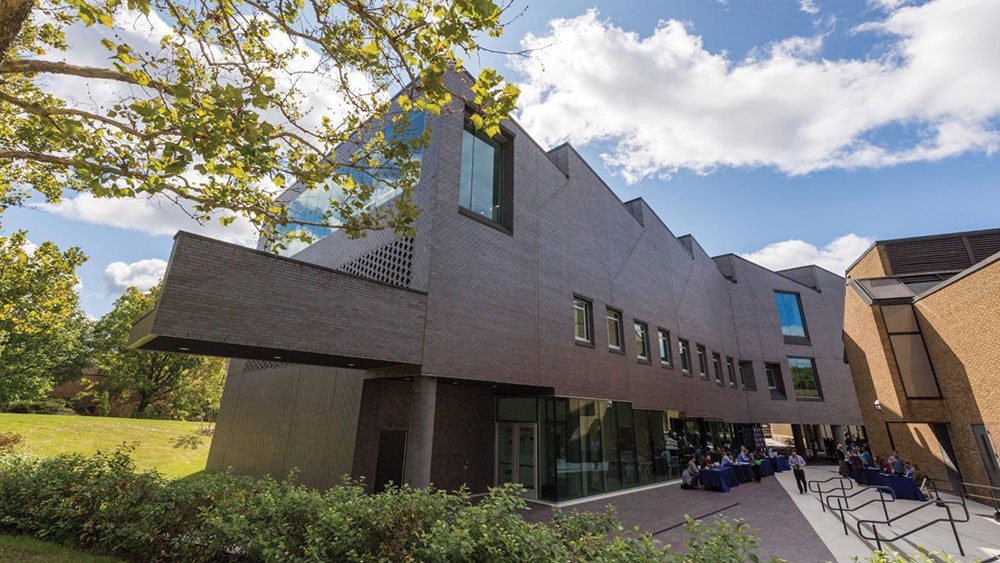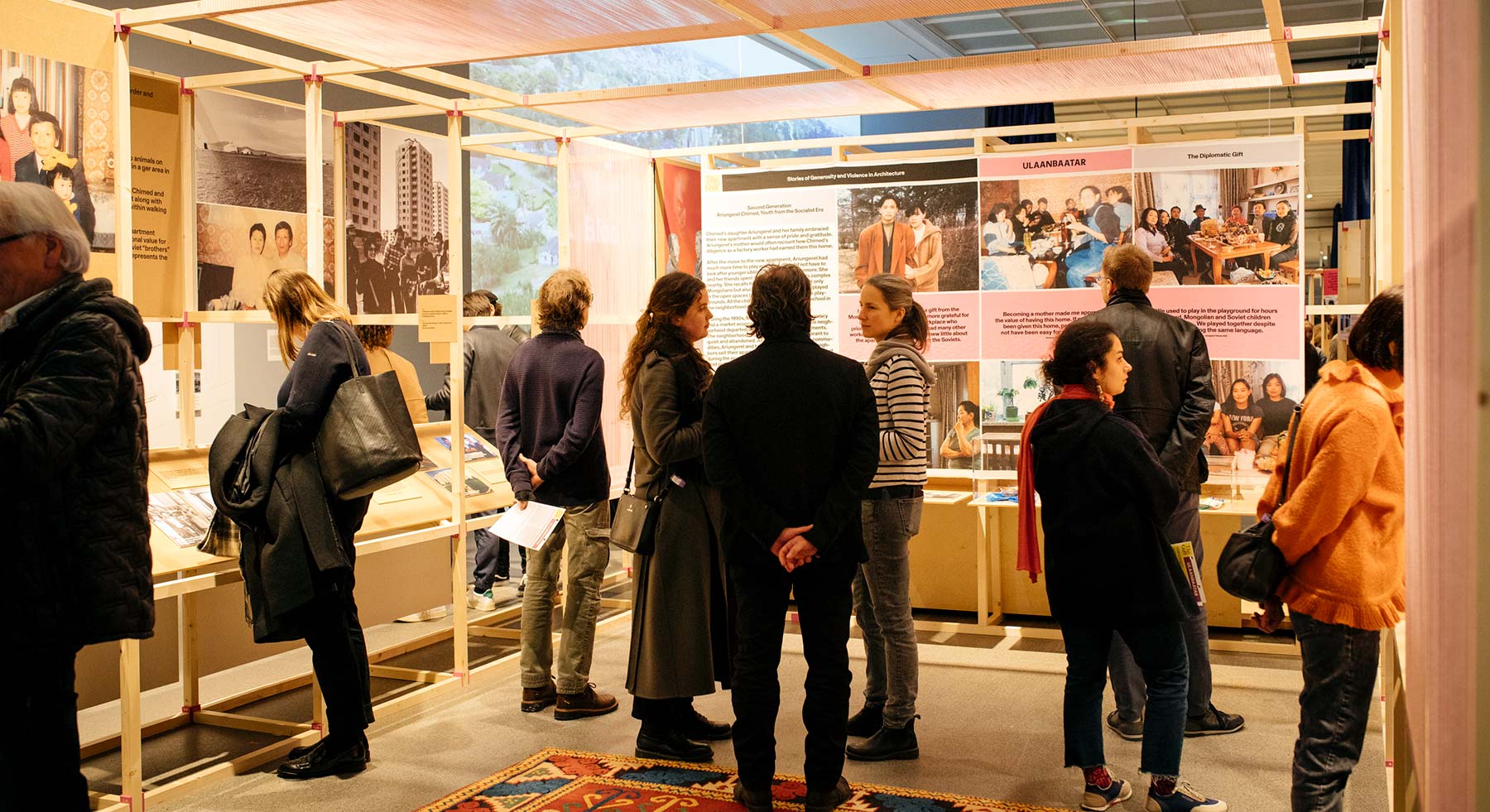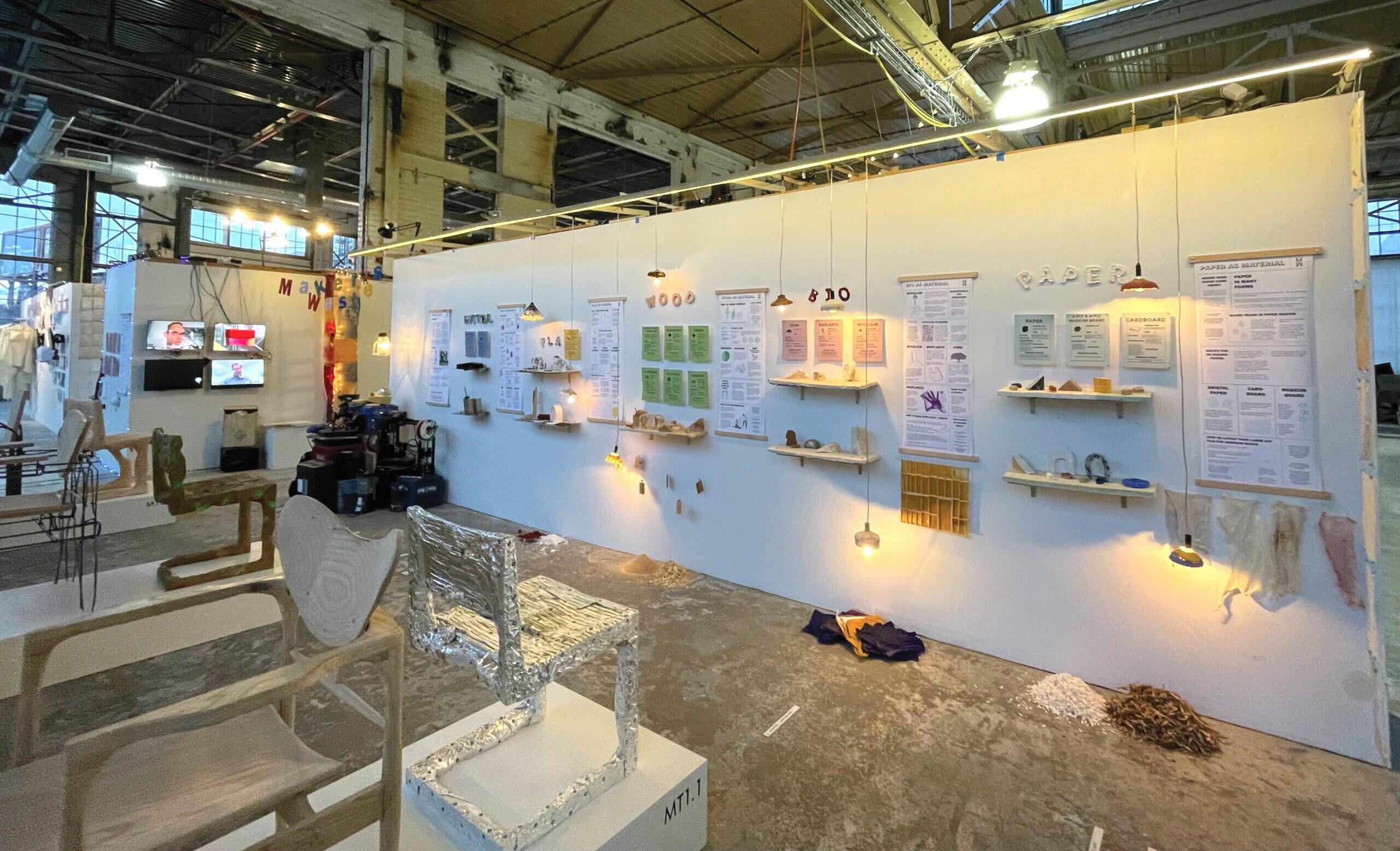Taubman College welcomes four new faculty members for the 2021–2022 academic year, as well as five fellows.
“With our 94 faculty across virtually every subject area in architecture, planning, and urban design, Taubman College gives students an unmatched breadth of opportunity to promote positive change in our built environment,” said Dean Jonathan Massey. “We thrive on the ideas and energies that new faculty bring to those already here, and we take pride in mentoring these incoming colleagues. To deepen these processes, we have extended our fellowships from one year to two, giving students, faculty, and fellows alike more time to teach and learn from one another.”
The new faculty members are as follows:
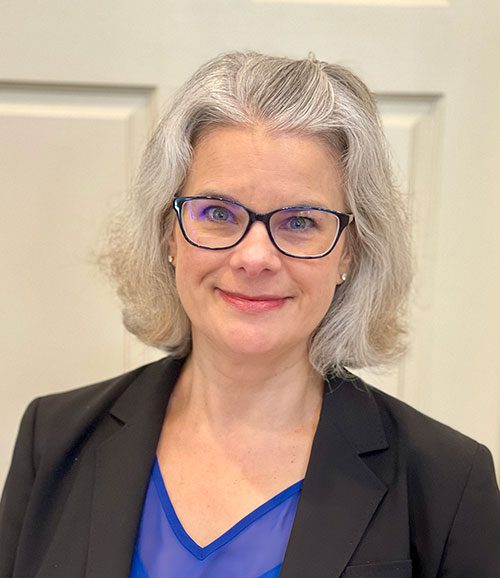 Melina Duggal, M.U.P. ’95, joins the college as a visiting assistant professor of practice in urban and regional planning. She has 25 years of experience in the real estate industry. Since 2016 she has been the president of Duggal Real Estate Advisors, LLC, a woman-owned real estate advisory firm. She provides clients with feasibility studies, competitive market analysis, economic development strategies, financial analysis, corridor studies, and redevelopment strategies throughout the United States. She teaches at the George Mason University Masters in Real Estate Development (MRED) program and has taught at the University of Maryland in the Department of Real Estate in the School of Architecture, Planning, and Preservation. Prior to starting Duggal Real Estate Advisors, she worked for RCLCO, a real estate advisory firm, and Wade-Trim, an engineering and planning firm. She has spoken for organizations such as the Urban Land Institute, Commercial Real Estate for Women, National Association of Homebuilders, and the American Planning Association. Melina has written multiple articles and is a contributing author to the ULI Resort Development Handbook and Land Development Handbook Series, Development of the Built Environment: From Site Acquisition to Project Completion. She received her Master of Urban Planning and Bachelor of Arts from the University of Michigan.
Melina Duggal, M.U.P. ’95, joins the college as a visiting assistant professor of practice in urban and regional planning. She has 25 years of experience in the real estate industry. Since 2016 she has been the president of Duggal Real Estate Advisors, LLC, a woman-owned real estate advisory firm. She provides clients with feasibility studies, competitive market analysis, economic development strategies, financial analysis, corridor studies, and redevelopment strategies throughout the United States. She teaches at the George Mason University Masters in Real Estate Development (MRED) program and has taught at the University of Maryland in the Department of Real Estate in the School of Architecture, Planning, and Preservation. Prior to starting Duggal Real Estate Advisors, she worked for RCLCO, a real estate advisory firm, and Wade-Trim, an engineering and planning firm. She has spoken for organizations such as the Urban Land Institute, Commercial Real Estate for Women, National Association of Homebuilders, and the American Planning Association. Melina has written multiple articles and is a contributing author to the ULI Resort Development Handbook and Land Development Handbook Series, Development of the Built Environment: From Site Acquisition to Project Completion. She received her Master of Urban Planning and Bachelor of Arts from the University of Michigan.
Olaia Chivite Amigo, M.Arch ’18</strong>; Ian Donaldson, B.S.Arch ’14</strong>; and Laura Peterson will serve as lecturers in architecture.
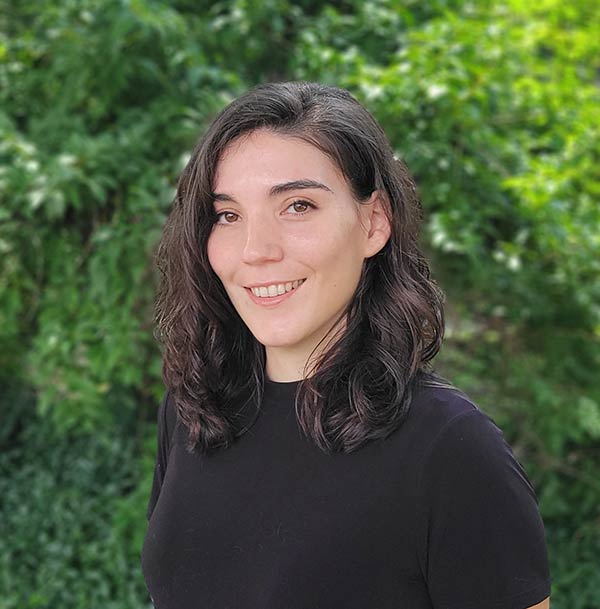 Chivite Amigo is an architect at INFORM Studio. In addition, she is a recurring research collaborator for MAde Studio, a research-based, collaborative design practice that offers integrated expertise in architecture, landscape, and urbanism. At MAde, her work focuses on developing visualization and representation strategies that depict the social, spatial, and ecological dynamics of contested urban spaces. She has contributed to “Dam[n]ed,” “Informal+Sustainable,” and “Detroit: Contested Urbanisms of Abandonment,” which was exhibited in the 2019 Seoul Biennial of Architecture and Urbanism. She also has worked at PLY+ Architecture and Urbanism, where she contributed to the Michigan Animal Rescue League project and the Marygrove School in Detroit and led the upcoming building renovation at the Museum of Contemporary Art of Detroit. She holds a Master of Architecture degree from Taubman College.
Chivite Amigo is an architect at INFORM Studio. In addition, she is a recurring research collaborator for MAde Studio, a research-based, collaborative design practice that offers integrated expertise in architecture, landscape, and urbanism. At MAde, her work focuses on developing visualization and representation strategies that depict the social, spatial, and ecological dynamics of contested urban spaces. She has contributed to “Dam[n]ed,” “Informal+Sustainable,” and “Detroit: Contested Urbanisms of Abandonment,” which was exhibited in the 2019 Seoul Biennial of Architecture and Urbanism. She also has worked at PLY+ Architecture and Urbanism, where she contributed to the Michigan Animal Rescue League project and the Marygrove School in Detroit and led the upcoming building renovation at the Museum of Contemporary Art of Detroit. She holds a Master of Architecture degree from Taubman College.
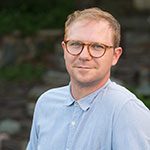 Donaldson is an architectural designer whose work focuses on shifting scales between the ephemeral, programmatic, and relational complexity that govern the built environment — finding slack and contradiction as opportunities for transformation and experimentation. Previously, Donaldson has worked on publications, installations, retail, housing, urban design, and cultural institutions while practicing in New York, Los Angeles, and Detroit. He holds a Master of Architecture from Yale University, where he was awarded the George Nelson Scholarship — researching the spaces of contemporary cultural production in Marrakech within the context of foreign direct investment and neo-liberal urban transformation.
Donaldson is an architectural designer whose work focuses on shifting scales between the ephemeral, programmatic, and relational complexity that govern the built environment — finding slack and contradiction as opportunities for transformation and experimentation. Previously, Donaldson has worked on publications, installations, retail, housing, urban design, and cultural institutions while practicing in New York, Los Angeles, and Detroit. He holds a Master of Architecture from Yale University, where he was awarded the George Nelson Scholarship — researching the spaces of contemporary cultural production in Marrakech within the context of foreign direct investment and neo-liberal urban transformation.
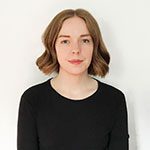 Peterson is an architect, artist, and educator who led the product development of the WeLive co-housing units, the concept design for the Henry Ford Center for Sustainability, and a ground-up housing and zoning proposal, “How to Build* Our Own Living Structures,” that received an honorable mention from the City of Los Angeles. Peterson is co-founder of 1+1+ Architects, who bring architecture to new audiences through scaling down by working with local businesses, developers, and nonprofits and scaling up by engaging in systematic issues shaping our built environment today, including housing and climate change. She often collaborates on interdisciplinary projects such as “Holy MTA” with photographer A-Chan, “The Topiary Creatures” with Other Fields, and a Circle Fest pavilion proposal with artist Tahir Karmali. Peterson recently was awarded a residency at the Montello Foundation and is co-curator of the 2021 Detroit Month of Design exhibition, also entitled How to Build* Our Own Living Structures. She holds a Master of Architecture from Columbia University.
Peterson is an architect, artist, and educator who led the product development of the WeLive co-housing units, the concept design for the Henry Ford Center for Sustainability, and a ground-up housing and zoning proposal, “How to Build* Our Own Living Structures,” that received an honorable mention from the City of Los Angeles. Peterson is co-founder of 1+1+ Architects, who bring architecture to new audiences through scaling down by working with local businesses, developers, and nonprofits and scaling up by engaging in systematic issues shaping our built environment today, including housing and climate change. She often collaborates on interdisciplinary projects such as “Holy MTA” with photographer A-Chan, “The Topiary Creatures” with Other Fields, and a Circle Fest pavilion proposal with artist Tahir Karmali. Peterson recently was awarded a residency at the Montello Foundation and is co-curator of the 2021 Detroit Month of Design exhibition, also entitled How to Build* Our Own Living Structures. She holds a Master of Architecture from Columbia University.
In addition, four fellows join the college for two-year appointments as teachers and researchers, including a new fellowship that focused on decolonization and spatial justice.
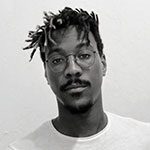 Kevin Bernard Moultrie Daye will serve as the inaugural Spatial and Racial Justice Fellow, beginning in the Winter 2022 term. Understanding that architecture is a cultural product that always negotiates a complex multitude of voices and ideas and a myriad of social, political, and aesthetic concerns, Taubman College launched the Spatial and Racial Justice Fellowship program in 2021 to attract designers, practitioners, spatial activists, and researchers focusing on concerns at the intersection of race, ethnicity, gender, and the built environment.
Kevin Bernard Moultrie Daye will serve as the inaugural Spatial and Racial Justice Fellow, beginning in the Winter 2022 term. Understanding that architecture is a cultural product that always negotiates a complex multitude of voices and ideas and a myriad of social, political, and aesthetic concerns, Taubman College launched the Spatial and Racial Justice Fellowship program in 2021 to attract designers, practitioners, spatial activists, and researchers focusing on concerns at the intersection of race, ethnicity, gender, and the built environment.
Daye makes music, designs, curates, fabricates, and is a founding member of SPACE INDUSTRIES. He is also an architectural designer for EHDD. His work focuses on issues of how issues of climate, identity, material and culture intersect in spatial theory. As one of the 2021 Emerging Curators at LACE (L.A.), along with co-curator Alex Jones, he will stage PARABLE 003, an exhibition that draws on the long and storied history of Black communities and settlements as tools of resistance. As a member of SPACE INDUSTRIES, he was a participating artist/curator in the Gray Area Foundation (S.F.) 2020 Experiential Space Research Lab (ESRL), developing the immersive exhibition This Will Be The End Of You, exploring notions of selfhood and identity in ecological thought and specifically focusing on issues of environmental justice and radioactivity in the Black community at Hunters Point/ Bayview.
In 2019, he co-curated the SOMArts (S.F.) exhibition, Forever, A Moment: Black Meditations on Time and Space, a multidisciplinary community art exhibition that explores Black identity and the way it experiences, interprets, distorts, and ultimately transforms time and space. He earned a Master of Architecture degree at the University of California, Berkeley.
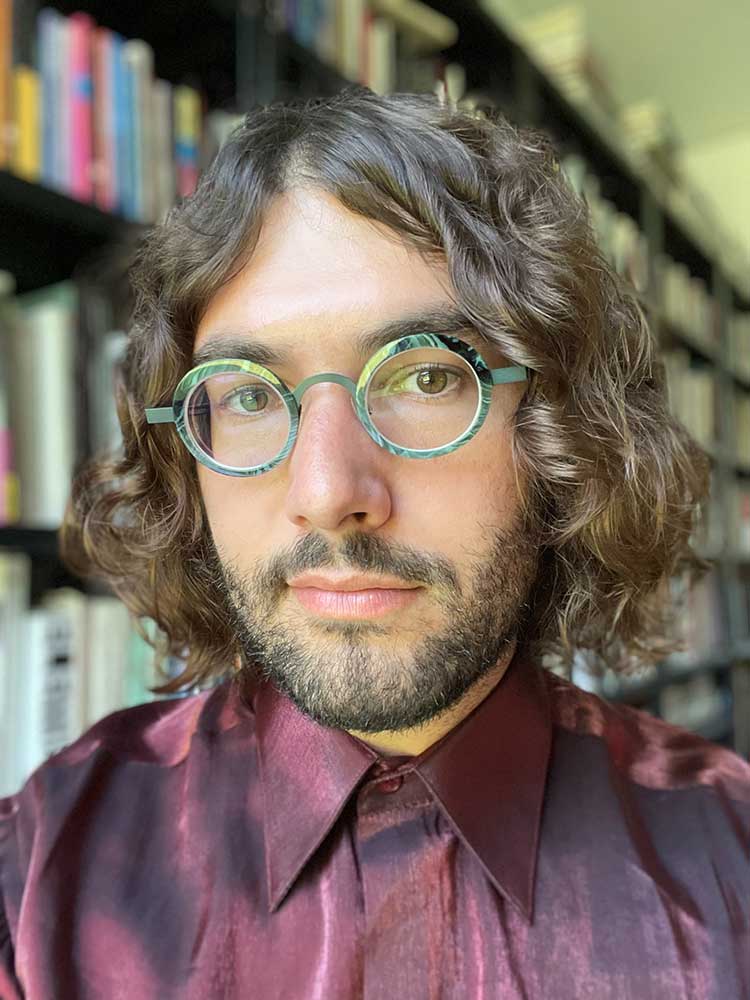 Beginning in the Fall 2021 term, Adam Miller will serve as the Muschenheim Fellow. From 2019 to 2021, Miller was the two-time recipient of the Race & Gender in the Built Environment Fellowship at the University of Texas Austin’s School of Architecture. He is director of Pneu-Stars, a collaborative design group that produces stage designs and installations since 2014, including for Total Trash Productions’ trash rock music festival in Oakland, California. His research investigates the relationship between taste, power, and identity through the lens of the queer body and queer architecture. Miller’s interests lie in renegotiating the legacies of Modern architecture and its taste culture by using queer theory, feminist theory, biopolitics, and aesthetics to develop design that takes marginalized perspectives into account. He asks: How does architectural style confer an aesthetic value system, and how can we come to recognize and reappropriate its tools for proposing alternative ways of seeing, making, and ultimately identification? If the prevailing conception of beauty is not a reflection of how we see ourselves, whose beauty is it? Miller earned his Master of Architecture degree from the University of California, Berkeley.
Beginning in the Fall 2021 term, Adam Miller will serve as the Muschenheim Fellow. From 2019 to 2021, Miller was the two-time recipient of the Race & Gender in the Built Environment Fellowship at the University of Texas Austin’s School of Architecture. He is director of Pneu-Stars, a collaborative design group that produces stage designs and installations since 2014, including for Total Trash Productions’ trash rock music festival in Oakland, California. His research investigates the relationship between taste, power, and identity through the lens of the queer body and queer architecture. Miller’s interests lie in renegotiating the legacies of Modern architecture and its taste culture by using queer theory, feminist theory, biopolitics, and aesthetics to develop design that takes marginalized perspectives into account. He asks: How does architectural style confer an aesthetic value system, and how can we come to recognize and reappropriate its tools for proposing alternative ways of seeing, making, and ultimately identification? If the prevailing conception of beauty is not a reflection of how we see ourselves, whose beauty is it? Miller earned his Master of Architecture degree from the University of California, Berkeley.
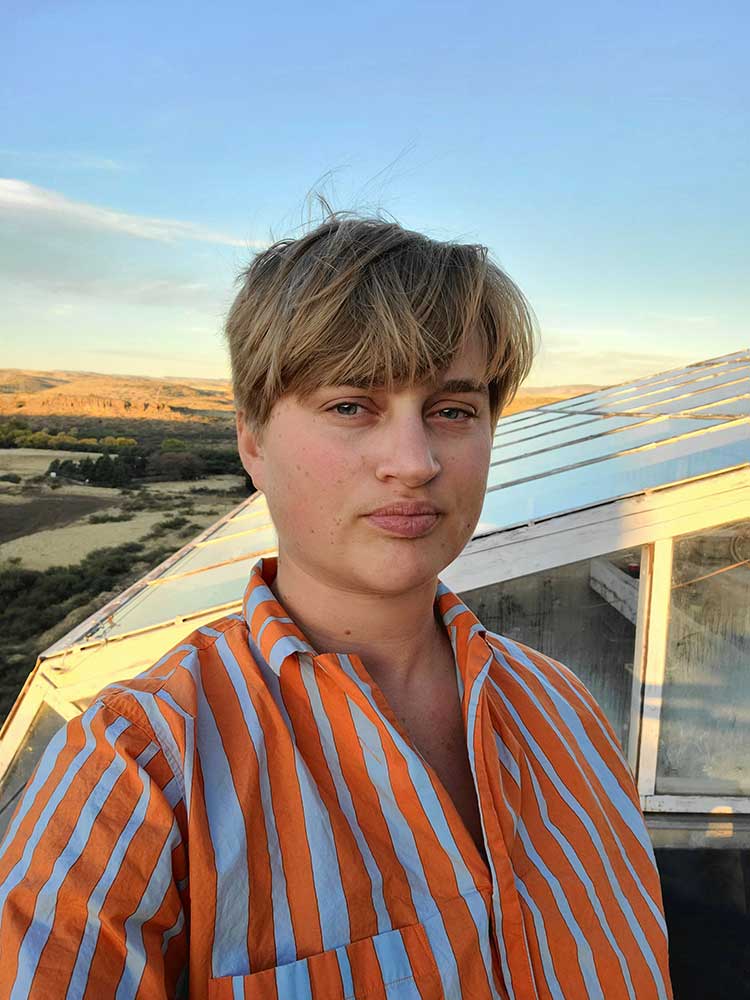 Leah Wulfman is the Walter B. Sanders Fellow, beginning in the Fall 2021 term. Wulfman is a Carrier Bag architect, educator, game designer, digital puppeteer, and occasional writer. They have been assembling hybrid, virtual, and physical spaces to prototype new relationships to technology and nature, as well as challenge normative ideologies so often reinforced by technology and architecture. In addition to mixed reality installations that play with and emphasize the physical, material basis of everything digital, they are presently working on a research series focusing on gamified environments, interactions, and materials — traversing a variety of themes like Deep Unlearning, Stone Soupercomputers, GamerGirl Bath Water, and our potential interactions with a Jacaranda Tree in full bloom witnessed through Google Earth. Wulfman’s work experience can be likened to playing musical chairs, with collaborative projects presently underway with Studio Elana Schlenker and the L.A.-based artist Lauren Halsey. Their research and design work has been shown at Tbilisi Architecture Biennial, The FiDi Arsenale, Space Saloon Design and Build Festival, Open Engagement, VIA Festival for Electronic Art and Music, A Queer Query, and The Wrong Biennale for New Digital Art. They hold a Bachelor of Architecture degree from Carnegie Mellon University and a Master of Science in Fiction and Entertainment from SCI-Arc.
Leah Wulfman is the Walter B. Sanders Fellow, beginning in the Fall 2021 term. Wulfman is a Carrier Bag architect, educator, game designer, digital puppeteer, and occasional writer. They have been assembling hybrid, virtual, and physical spaces to prototype new relationships to technology and nature, as well as challenge normative ideologies so often reinforced by technology and architecture. In addition to mixed reality installations that play with and emphasize the physical, material basis of everything digital, they are presently working on a research series focusing on gamified environments, interactions, and materials — traversing a variety of themes like Deep Unlearning, Stone Soupercomputers, GamerGirl Bath Water, and our potential interactions with a Jacaranda Tree in full bloom witnessed through Google Earth. Wulfman’s work experience can be likened to playing musical chairs, with collaborative projects presently underway with Studio Elana Schlenker and the L.A.-based artist Lauren Halsey. Their research and design work has been shown at Tbilisi Architecture Biennial, The FiDi Arsenale, Space Saloon Design and Build Festival, Open Engagement, VIA Festival for Electronic Art and Music, A Queer Query, and The Wrong Biennale for New Digital Art. They hold a Bachelor of Architecture degree from Carnegie Mellon University and a Master of Science in Fiction and Entertainment from SCI-Arc.
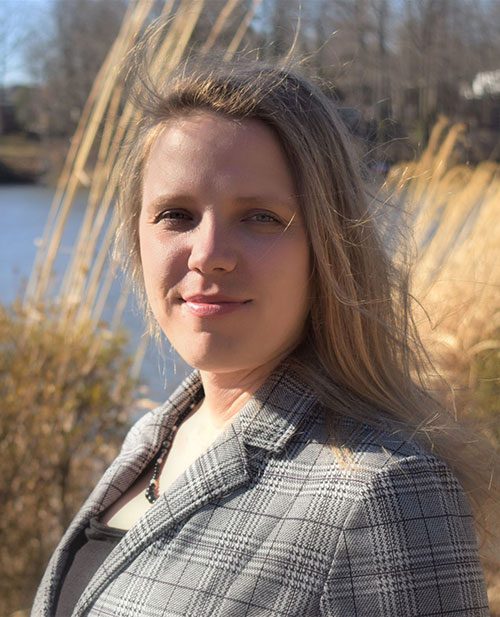 Vyta Pivo is a Michigan Society of Fellows fellow in architecture. She is a postdoctoral scholar and assistant professor specializing in architectural and urban history, environmental studies, and the U.S. in global context. Her current project, The Gospel of Concrete: American Infrastructure and Global Power, documents the global ambitions of the U.S. cement and concrete industries along with the environmental and social consequences of their unfettered expansion. This research has been supported with fellowships and grants from the Andrew W. Mellon Foundation, the American Council of Learned Societies, the National Science Foundation, the National Academies of Sciences, the Library of Congress, the Smithsonian Institution, the Society of Architectural Historians, the Hagley Library and Museum, and GWU. The National Academies of Sciences recognized her research on concrete during World War I with its 2018 grand prize for research. Her articles have appeared in the Journal of the Society of Architectural Historians, the Journal of Architectural Education, and a host of popular outlets, including Psyche/Aeon, Humanities, PLATFORM, Metropole, Gotham, and SAH Archipedia. She holds a PhD in American Studies from the George Washington University, an MA in architectural history from University College London, and a BA in studio arts/architecture from Wesleyan University.
Vyta Pivo is a Michigan Society of Fellows fellow in architecture. She is a postdoctoral scholar and assistant professor specializing in architectural and urban history, environmental studies, and the U.S. in global context. Her current project, The Gospel of Concrete: American Infrastructure and Global Power, documents the global ambitions of the U.S. cement and concrete industries along with the environmental and social consequences of their unfettered expansion. This research has been supported with fellowships and grants from the Andrew W. Mellon Foundation, the American Council of Learned Societies, the National Science Foundation, the National Academies of Sciences, the Library of Congress, the Smithsonian Institution, the Society of Architectural Historians, the Hagley Library and Museum, and GWU. The National Academies of Sciences recognized her research on concrete during World War I with its 2018 grand prize for research. Her articles have appeared in the Journal of the Society of Architectural Historians, the Journal of Architectural Education, and a host of popular outlets, including Psyche/Aeon, Humanities, PLATFORM, Metropole, Gotham, and SAH Archipedia. She holds a PhD in American Studies from the George Washington University, an MA in architectural history from University College London, and a BA in studio arts/architecture from Wesleyan University.
 In addition, Torri Smith, M.Arch ’21, will serve as Michigan Mellon Design Fellow in Egalitarianism and the Metropolis. Funded by the Andrew W. Mellon Foundation, the Michigan-Mellon Project on the Egalitarian Metropolis explores contemporary issues on urbanism and egalitarianism through an interdisciplinary collaboration between faculty and students at Taubman College and College of Literature, Science and the Arts. Smith’s fellowship research, building on her interests at the intersections of environmental justice, urban activism, and design, will explore ways ecological regeneration can address systemic racial inequity. Smith won the Burton L. Kampner Memorial Award for the most outstanding thesis, as well as a Program Distinction Award. Deeply committed to the culture of Taubman College, Smith was co-creator of Design Justice Actions, co-lead of the Taubman College Community Engagement Working Group, executive board member of NOMAS, and contributor to Design Futures Forum. Prior to coming to Taubman College, Smith worked as an architectural designer at ROSSETTI, taught art and architecture at Denby High School, and launched an independent art and design practice in Detroit.
In addition, Torri Smith, M.Arch ’21, will serve as Michigan Mellon Design Fellow in Egalitarianism and the Metropolis. Funded by the Andrew W. Mellon Foundation, the Michigan-Mellon Project on the Egalitarian Metropolis explores contemporary issues on urbanism and egalitarianism through an interdisciplinary collaboration between faculty and students at Taubman College and College of Literature, Science and the Arts. Smith’s fellowship research, building on her interests at the intersections of environmental justice, urban activism, and design, will explore ways ecological regeneration can address systemic racial inequity. Smith won the Burton L. Kampner Memorial Award for the most outstanding thesis, as well as a Program Distinction Award. Deeply committed to the culture of Taubman College, Smith was co-creator of Design Justice Actions, co-lead of the Taubman College Community Engagement Working Group, executive board member of NOMAS, and contributor to Design Futures Forum. Prior to coming to Taubman College, Smith worked as an architectural designer at ROSSETTI, taught art and architecture at Denby High School, and launched an independent art and design practice in Detroit.

